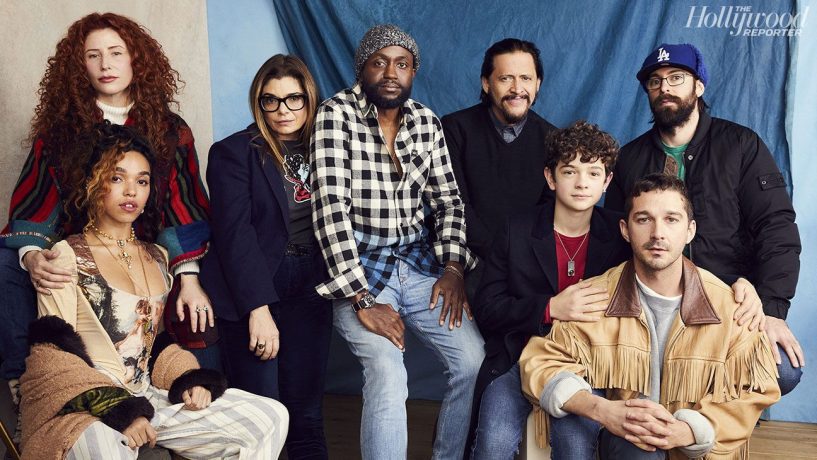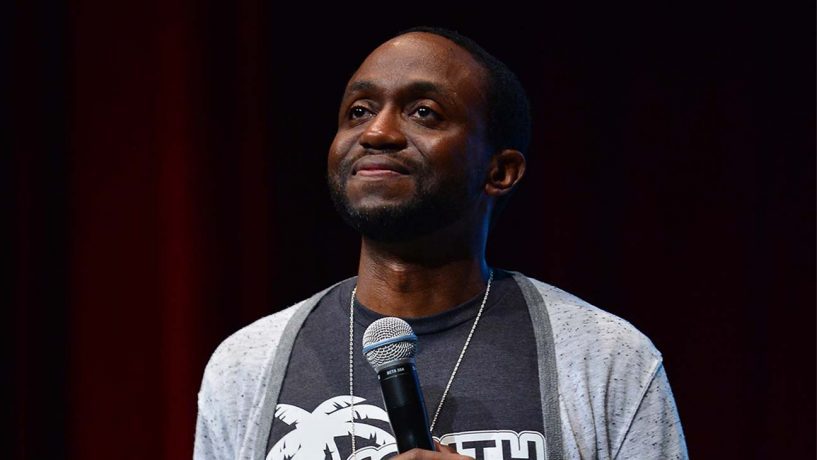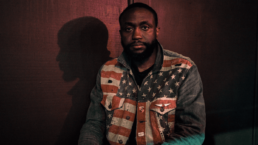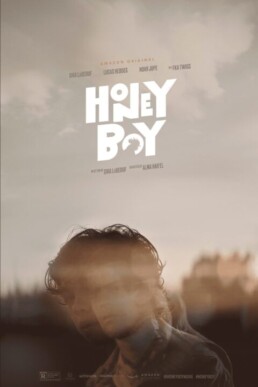Byron Bowers: “I’m still human. I still feel sad. And I’m in a good movie.”
During our exclusive interview, Byron Bowers talks about growing up with a schizophrenic father, working with director (and partner) Alma Har'el, and the one thing that really makes him happy.
I’m sitting in my office in Koreatown when my phone rings. Comedian/actor/multi-hyphenate Byron Bowers is on the other line, calling from a quiet location in a Beverly Hills hotel during the stacked press day for the highly anticipated Honey Boy. It’s a beautiful sunny day, high seventies in early November, and, no joke, birds are chirping outside the window. I’d imagine this is the quintessential “made it moment” for any typical Hollywood actor, but there’s something different about Bowers. He’s not “typical.” I came to discover through our 15-minute chat that Bowers, who has been described by LA Weekly as “A Comic Who’s Got Big Ideas and Big Plans to Go Big Places,” is an extremely humble and relatable man. He is grateful for the opportunity to do what he loves and sincerely wants to make a difference in every person’s life who watches his films or his stand-up sets. As an entertainment journalist, Byron Bowers is a breath of fresh air.
In our exclusive interview, we talk about growing up with a schizophrenic father, working with director (and girlfriend) Alma Har’el, and the thing that makes him happy.
I absolutely loved this film. I saw it at Sundance earlier this year and it blew me away. There was a standing ovation and everyone in tears. It was just fantastic. What has this process been like for you, from Sundance up until now?
Oh, it’s been a ride! That was my first time at Sundance and after the film, I remember taking a meeting with an agency (that I’ve now signed with), and they were blown away by it. I really didn’t know what was going on, I’m like, ‘Oh, y’all liked it. Oh, that’s cool.’
It’s just been a ride getting things together and getting projects off the ground. Closer to the release we’re hitting other film festivals in Canada, New York, everybody’s giving this film standing ovations and they’re teary-eyed after the film. I’m like, man, this is a beautiful project right here. If I could do projects like this, I think I will be happy.
Yeah, absolutely. And I think everyone that watches this film takes away something different and unique to their personal life experience. I read that you grew up a schizophrenic father, paralleling Otis’ upbringing. Did you see yourself in Otis?
I did. Once I read the script, I knew this story had to be told because it is an insight into somebody whose life isn’t based in reality. I feel like a part of my life wasn’t based in reality. Before I shot this film, I was questioning what was real or what happened in my life, and then to read a script where you have a kid who, as an actor, part of his life isn’t real either and is the child of an addict himself, gave me empathy for who Shia was and let me see how similar we are.
I read this quote once that asked, ‘Do you have to be sad to write a sad song and happy to write a happy song?’ I found it interesting to think about as an artist, how your circumstances affect your art. Do you think your upbringing has impacted the artists that you are today?
I think it gave me a different outlook on life. And the thing is to celebrate your flaws. That’s how I look at it now, celebrate your uniqueness. We all got a story, some good, some bad, but we all get to experience life.
But yeah, it shaped my point of view, and it allowed me to think differently. And I use that on stage. I understand there are different layers to my life; I’m a person, I’m black, I’m a child of an addict. I’m all these other things. Because my father lived in different dimensions, I’m allowed to travel amongst all those spiritual planes, so to speak. So yeah, it definitely affects me on different levels. Even the jokes that I do and the material I tell, I have a different point of view.
I was able to rewrite my part so that character is a part of me. So I will never let go of that person…

Read more: A Beginner’s Guide to: Alma Har’el
Yeah, that’s fascinating. And this is the perfect movie to express all of those emotions, especially with Alma Har’el [director] being who she is – this amazing badass woman. I’d imagine the set felt safe to work through those feelings. Can you describe the on-set experience and your relationship working with Alma?
Alma and I have been dating for four years. This experience was having to really listen to her and trust her with my art, which I’ve never had to do before. If I had a question about how things were, I learned to not question it. You don’t tell the director what she should do, you know? We’re not at home anymore, we’re at work! And I’m like, Oh, snap I had to learn that on the fly.
Laughter
She gave the actors the freedom to really be the character. It’s not about the lines or hitting the mark. It’s just ‘be you walking around as this person.’ So that allowed the movie to be very authentic.
Is this a character that you’re going to miss?
I’m fortunate because I was able to rewrite my part so that character is a part of me. So I will never let go of that person, that’s myself. It’s just a marker in time of what I was going through, like my cousin who is here with me today, he was in prison when we shot the film. I had guilt for living the life I lived when my cousin and I had two addicts as parents. And our lives are now so different. Those are the things that will always be the place markers in my life.
Wow, that makes this film even more powerful.
Yeah, I was given the freedom to put not my story, but my essence into the character. It suits me because I live in California, I’m originally from Georgia, and California feels like rehab or jail at times because it’s so isolating and lonely.
When I’m doing a set, I’m not only making you laugh anymore, you’re going to feel a range of emotions a Byron Bowers experience.

Absolutely. I’m born and raised in California and still struggle with the LA pressure and isolation.
Yeah.
As an artist, a comedian, and an actor, how do you best feel like you express yourself? Is it getting lost in a role or being on stage and telling your life story?
I think telling my story is the most cathartic thing. I went from joke-telling to storytelling, and I see how it affects people differently. When I’m doing a set, I’m not only making you laugh anymore, you’re going to feel a range of emotions a Byron Bowers experience. This film has shown me that I can have other outlets to reach people and tell stories.
Aside from your career, which is incredible, what brings you joy?
It’s not the “career” part, it’s more of you all following me on a journey. I could be vulnerable and show you that it’s not a career, like, I don’t know how some of these things are happening. All I have is what I have and look where it’s gotten me, and I want you to do the same thing because it could change your life. I want people to get that from me, you know?
I’m still human. I still feel sad. And I’m in a good movie. And it’s OK to be sad because we all get sad. That’s what I want, for people to feel those things, to experience life for themselves and live it because this is all we have.
Morgan Rojas
Certified fresh. For disclosure purposes, Morgan currently runs PR at PRETTYBIRD and Ventureland.


